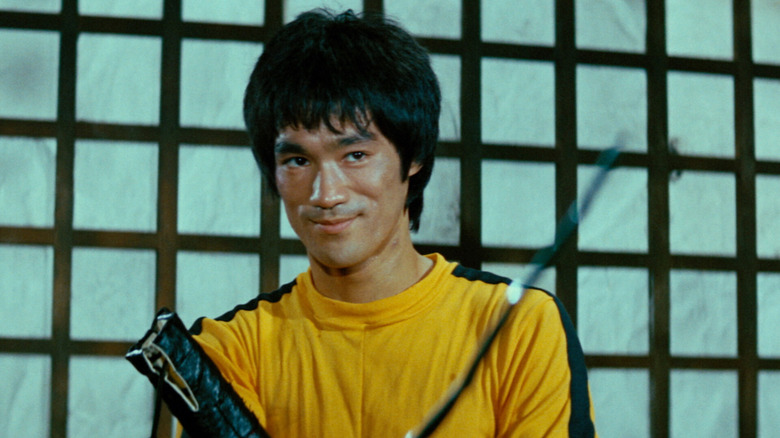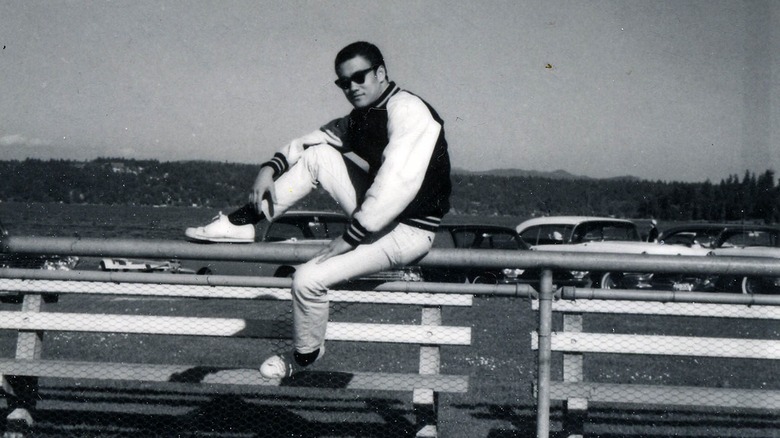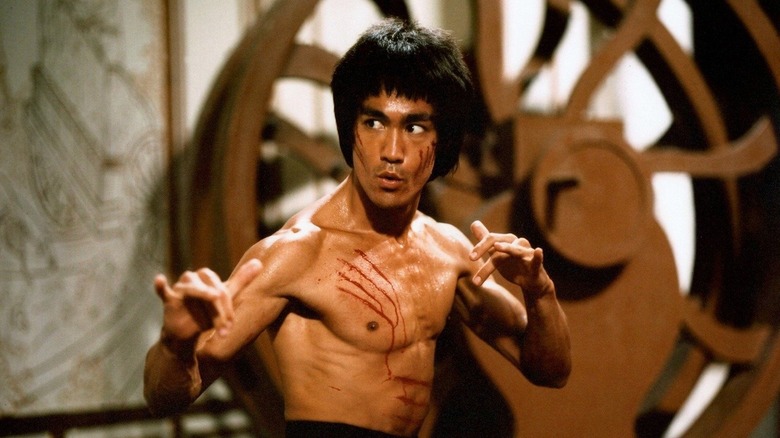Bruce Lee Was A 'Trojan Horse' For Be Water's Broader Message
Bruce Lee has been gone for nearly 50 years, but his legacy looms as large as ever in the American cultural consciousness. No single person did more to popularize martial arts in the United States than Lee. His movies drove kids all over the country to enroll in karate classes. There would probably be no UFC without him. The likes of Chuck Norris, Steven Seagal, and Jean Claude Van Damme owe their careers to him.
Most importantly, Lee broke down barriers for Asian-American actors in the predominantly white Hollywood of the 1960s and '70s. Though it would take the industry several more decades to take seriously the lack of Asian-American representation in movies and television shows (and it still has a long way to go), Lee's heartbreakingly brief stardom served as a gateway into Asian culture. Documentary filmmaker Bao Nguyen understands this, which is why his excellent ESPN documentary on Lee's life, "Be Water," uses its subject as a springboard to a larger conversation about Asian-American history.
Bruce Lee's obstacle-laden path to Hollywood stardom
Prior to his '70s breakthrough, Lee was hugely popular in Hollywood circles as a martial arts instructor to the stars. His students included Norris, James Coburn, Sharon Tate, and Kareem Abdul-Jabbar. He was a handsome man with high-wattage charisma. Everyone knew he was a movie star waiting to happen. But, as Nguyen's documentary repeatedly demonstrates, the studios wanted to showcase his blazingly brilliant martial artistry via white actors.
This was just one more infuriating instance of Asian-Americans being sidelined as their culture was wantonly exploited. As Nguyen told Jumpcut's Nguyen Le, Lee's struggles allowed him to educate viewers about a virulent strain of bigotry that isn't discussed nearly enough:
"[You can] think of the film as sort of this Trojan horse where you think you're learning just about Bruce Lee, but you're also learning about Asian American history, American racial history, the 'model minority' myth, and all of these things that sort of act as the contours of who we are as people as Asian Americans."
Still much work to be done
Hollywood has made a good deal of cosmetic progress over the last decade in terms of acknowledging Asian art (e.g. in 2020, Bong Joon-ho's "Parasite" became the first film not in English to win the Academy Award for Best Picture), but it's still failing when it comes to Asian-American representation and depiction. In 2021, the Coalition of Asian Pacifics in Entertainment survey showed that 35% of films featuring Asian-American or Pacific Islander characters employed at least one hoary cultural stereotype. Meanwhile, 90% of respondents said they are often the only person of Asian-American or Pacific Islander descent in the room. 55% of these respondents said they've encountered "blatant racism" at work.
For a supposedly progressive industry, these findings are more than inexcusable, they're abhorrent. While it's important to celebrate the life and accomplishments of Bruce Lee, it's just as vital to understand that the prejudice he faced 50 years ago hasn't gone away. There's much work to be done. This is something Nguyen's "Be Water," which is currently streaming on Disney+, painfully and emphatically drives home.


